July 14, 2023, 9:46 am
Efficient and productive dental office management is crucial for providing high-quality care, enhancing patient satisfaction, and maximizing practice success. Here are some ways to do so:
-
Appointment Scheduling Optimization: Efficient appointment scheduling is the cornerstone of dental office management. Implementing smart scheduling practices helps minimize patient wait times, optimize the utilization of dental resources, and reduce staff stress. One effective approach is to implement a centralized scheduling system that allows for efficient appointment booking, cancellations, and rescheduling. It is essential to strike a balance between accommodating patient preferences and maximizing chair utilization to minimize downtime.
-
Streamlining Administrative Tasks: Reducing the time and effort spent on administrative tasks is crucial for improving productivity. Implementing electronic health record (EHR) systems not only enhances record-keeping but also enables streamlined documentation, quick access to patient information, and seamless communication among staff members. Automation of routine administrative tasks, such as appointment reminders, insurance verifications, and billing, can significantly save time and reduce errors.
-
Effective Communication with Patients and Staff: Clear and efficient communication is vital for smooth operations in a dental office. Implementing systems for effective patient communication, such as appointment reminders via text or email, can reduce no-shows and last-minute cancellations. Additionally, regular staff meetings and communication channels facilitate teamwork, address concerns, and ensure everyone is on the same page regarding patient care and practice goals.
-
Leveraging Technology: The integration of technology can revolutionize dental office management, improving both efficiency and patient experience. Digital radiography systems provide instant access to diagnostic images, eliminating the need for physical film and reducing processing time. Dental practice management software enables streamlined appointment scheduling, billing, and inventory management. Embracing emerging technologies like artificial intelligence and telemedicine can further optimize operations and enhance patient care.
-
Staff Training and Development: Investing in ongoing training and development for dental office staff is key to boosting efficiency. Providing regular training on new techniques, technologies, and best practices helps staff stay up-to-date and perform their tasks efficiently. Cross-training staff members on different roles within the office promotes flexibility and ensures seamless operations in case of absences or emergencies.
-
Inventory Management: Efficient management of dental supplies and inventory is essential to avoid shortages, reduce waste, and optimize costs. Implementing a digital inventory management system that tracks inventory levels, automates reordering, and generates reports can save time and prevent overstocking or stockouts. Regular auditing of inventory helps identify and eliminate expired or redundant supplies.
-
Regulatory Compliance: Adhering to dental regulations and guidelines is crucial for maintaining a reputable practice. Staying updated with the latest regulatory requirements and implementing robust compliance protocols ensures patient safety and prevents legal issues. Regular staff training, internal audits, and external compliance assessments help identify and rectify any compliance gaps.
-
Continual Quality Improvement: Implementing a culture of continual quality improvement fosters a proactive approach to dental office management. Encouraging staff to provide feedback, conducting patient satisfaction surveys, and analyzing performance metrics help identify areas for improvement. By addressing these areas and implementing changes, dental offices can continually enhance efficiency and patient care
Efficient dental office management is a critical component of a successful and thriving practice. By implementing the best practices discussed above, dental professionals can streamline their operations, boost productivity, and enhance patient satisfaction. It is essential to continually evaluate and adapt these practices to meet the evolving needs of the dental industry, technological advancements, and changing patient expectations
